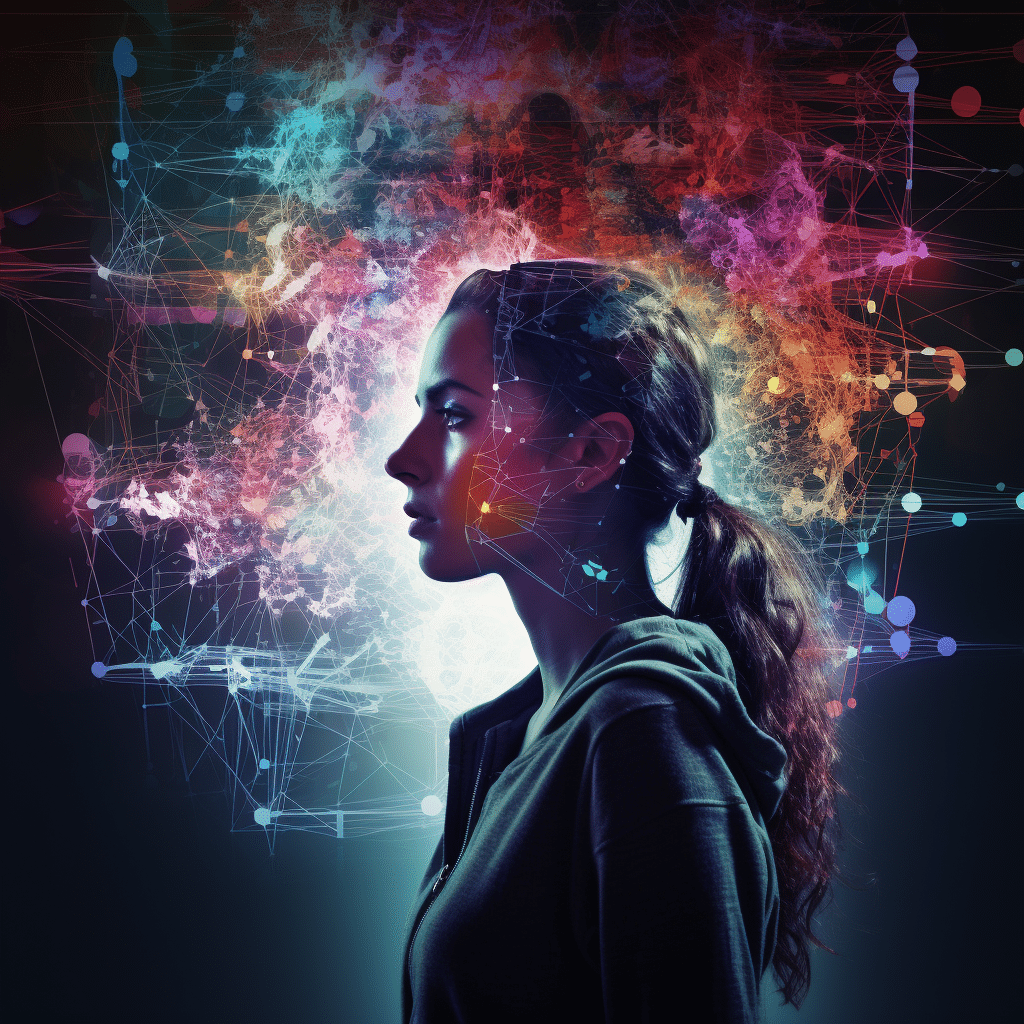
The Role of AI in Addiction and Mental Health Treatment
The field of addiction and mental health treatment faces numerous challenges, from limited resources to difficulties in accurately diagnosing and monitoring conditions. However, significant advancements have been made with the integration of Artificial Intelligence (AI) into these domains. AI technology offers promising opportunities to enhance the effectiveness and accessibility of addiction and mental health treatment.

Early Detection and Diagnosis
One of the primary advantages of AI in addiction and mental health treatment is its ability to aid in early detection and diagnosis. Machine learning algorithms can analyze vast amounts of data, including medical records, genetic information, and individual behavior patterns to identify potential risk factors and early signs of addiction or mental health disorders.
“AI algorithms can analyze vast amounts of data, including medical records, genetic information, and individual behavior patterns to identify potential risk factors and early signs of addiction or mental health disorders.”
This early detection can enable healthcare professionals to intervene promptly, preventing conditions from worsening and improving treatment outcomes. AI-powered tools also provide a means to track treatment progress and adjust therapeutic approaches dynamically.
Personalized Treatment Plans
AI plays a crucial role in tailoring treatment plans to meet the unique needs of individuals. By analyzing patient data, AI algorithms can provide personalized recommendations for interventions, medication regimens, and therapy approaches.
Moreover, AI technologies can facilitate remote monitoring and support systems. Wearable devices, integrated with AI, can track physiological and behavioral data in real-time. These insights allow professionals to adapt treatment plans based on patients’ evolving needs and offer timely intervention when necessary, regardless of geographical barriers.

Improved Clinical Decision-Making
The integration of AI into addiction and mental health treatment enhances clinical decision-making. Machine learning models can process large datasets, learning from past treatment outcomes and patterns to provide evidence-based recommendations to healthcare providers.
AI-powered diagnostic tools, such as chatbots and virtual assistants, offer cost-effective alternatives to traditional therapy by providing continuous support. They can offer preliminary assessments, immediate responses, and direct users towards appropriate resources or emergency contact if necessary. Although these AI tools should never replace human therapists, they can alleviate some of the burden on mental health professionals and extend care to a larger population.
Ethical Considerations and Human Oversight
While AI presents numerous opportunities, it also raises ethical questions. It is essential to maintain human oversight in the deployment and use of AI systems in addiction and mental health treatment. This ensures that decisions made by AI algorithms are transparent, unbiased, and aligned with patient privacy and autonomy rights.
A thoughtful and interdisciplinary approach to the development and regulation of AI technologies is necessary. Collaboration between healthcare professionals, data scientists, policy-makers, and ethicists can help establish responsible guidelines for AI usage in the field.
With proper oversight and integration, AI has the potential to revolutionize addiction and mental health treatment. It can augment human expertise, improve diagnostic accuracy, enhance treatment outcomes, and extend support to millions of individuals in need.
Through embracing these technologies, we can foster a more accessible and effective mental healthcare system, ultimately improving the well-being of individuals and communities around the world.
Resources:
How does the integration of AI in addiction and mental health treatment impact patient outcomes and overall healthcare system efficiency
The integration of AI in addiction and mental health treatment has the potential to significantly impact patient outcomes and overall healthcare system efficiency in several ways:
1. Personalized Treatment: AI algorithms can analyze large amounts of patient data, including electronic health records, genetic information, and patient-reported outcomes, to develop personalized treatment plans. This can help clinicians tailor interventions to individual patients, leading to more effective and targeted treatments and improved patient outcomes.
2. Early Detection and Intervention: AI-enabled tools can analyze patterns in data to identify early warning signs of addiction or mental health issues. By detecting these problems at an early stage, interventions can be initiated sooner, preventing escalation and improving outcomes. Additionally, AI-based chatbots or virtual assistants can support individuals by providing immediate access to resources and guidance.
3. Predictive Analytics: AI algorithms can analyze existing patient data to predict the risk of relapse or the likelihood of treatment success for a given intervention. This information can assist clinicians in making evidence-based decisions, allowing them to intervene proactively and potentially improve treatment outcomes.
4. Remote Monitoring and Support: AI can enable remote monitoring of patients, such as through wearable devices or smartphone apps, allowing for continuous data collection and analysis. This can help healthcare providers in monitoring patient progress, adherence to treatment plans, and identifying any potential issues or concerns, ultimately leading to more efficient and timely interventions.
5. Efficiency and Resource Allocation: AI can assist healthcare systems in optimizing resource allocation by identifying treatment patterns, evaluating treatment response, and analyzing outcomes. This can help in streamlining processes, reducing waiting times, and allocating resources efficiently to ensure patients receive timely and appropriate care.
6. Data-Driven Decision Making: AI can support healthcare providers and policymakers through data analysis and predictive modeling. This can facilitate evidence-based decision making in terms of allocation of resources, treatment protocols, and policy development, leading to more efficient and effective healthcare systems.
While the integration of AI in addiction and mental health treatment has the potential to improve patient outcomes and overall healthcare system efficiency, it is essential to ensure that the use of AI remains ethical, adheres to data privacy regulations, and does not replace the human element of care. Collaboration between AI-driven technologies and healthcare professionals is critical to harness the full potential of AI in addiction and mental health treatment.
How can AI technology be utilized in the field of addiction and mental health treatment?
AI technology can be utilized in the field of addiction and mental health treatment in various ways:
1. Early intervention and assessment: AI algorithms can analyze large amounts of data from individuals, such as their online behavior, social media posts, and public health records, to identify patterns and indicators of potential mental health issues or addiction. This can help identify individuals at risk and enable early intervention.
2. Personalized treatment plans: AI can analyze individual patient data to create tailored treatment plans based on their specific needs, preferences, and response to different interventions. This can improve the effectiveness of treatment and reduce trial-and-error approaches.
3. Virtual therapists and chatbots: AI-powered virtual therapists and chatbots can provide support and counseling to individuals experiencing addiction or mental health challenges. They can engage in conversations, provide resources, and offer coping strategies based on the individual’s symptoms and requirements, ensuring round-the-clock availability.
4. Predictive analytics and relapse prevention: AI algorithms can analyze data to predict individual relapse risks based on historical information and various relevant factors. This can help healthcare professionals intervene timely and provide targeted support to prevent relapses.
5. Insights and data analysis: AI can analyze large datasets, including electronic health records and research literature, to extract valuable insights and improve the understanding of addiction and mental health disorders. This can aid in developing new treatment approaches and improving existing ones.
6. Smart monitoring and feedback systems: AI can monitor and analyze patient behavior patterns, including substance use, sleep, physical activity, and social interactions, to provide real-time feedback and alerts for potential issues. This can help individuals stay accountable and provide valuable information to healthcare providers for personalized treatment adjustments.
7. Improving access to treatment: AI-powered digital platforms and mobile apps can make mental health resources, assessments, and interventions more accessible and affordable to individuals who may face barriers, such as geographical limitations or cost.
It is important to note that while AI technology holds significant potential, it should always be used in conjunction with human expertise and ethical considerations to ensure accurate diagnoses, respect patient privacy, and maintain a compassionate approach to mental health and addiction treatment.
In what ways can AI assist healthcare professionals in providing personalized and targeted treatment plans?
AI can assist healthcare professionals in providing personalized and targeted treatment plans in the following ways:
1. Enhanced data analysis: AI can analyze large sets of patient data, such as medical records, genomic data, and lifestyle data, to identify patterns and factors that may contribute to a particular disease or condition. This analysis can help healthcare professionals create personalized treatment plans based on individual patient characteristics.
2. Decision support systems: AI can provide decision support for healthcare professionals by offering evidence-based treatment recommendations and guidelines. AI-based systems can analyze patient data, consider medical literature and clinical trials, and suggest optimal treatment options based on factors like patient history, genetic predispositions, and treatment response.
3. Predictive analytics: AI algorithms can use predictive analytics to forecast disease progression, treatment response, and potential complications. This information can help healthcare professionals anticipate and prevent adverse events and adjust treatment plans accordingly.
4. Precision medicine: AI can contribute to precision medicine by identifying specific subgroups of patients who are likely to respond well to a particular treatment or medication. By considering individual genetic variations, lifestyle factors, and biomarker data, AI can help healthcare professionals tailor treatment plans to achieve better outcomes.
5. Virtual assistants and chatbots: AI-powered virtual assistants and chatbots can gather patient information, assess symptoms, and provide initial triage or guidance to patients. This technology can help healthcare professionals prioritize and streamline patient care, ensuring that they are efficiently allocating their time and resources.
6. Image and signal analysis: AI algorithms can analyze medical images, such as X-rays, MRIs, and CT scans, to detect anomalies, diagnose diseases, and recommend treatment options. Additionally, AI can process signals from wearables and remote monitoring devices to track patient health and provide real-time feedback to healthcare professionals for timely intervention.
7. Continuous monitoring and proactive care: AI can enable remote patient monitoring and early detection of potential health issues. By collecting and analyzing data from wearable devices, AI can provide insights on a patient’s vital signs, daily activities, sleep patterns, and other health indicators. This information can help healthcare professionals make proactive interventions and adjustments to treatment plans.
8. Drug discovery and development: AI can accelerate the drug discovery process by analyzing extensive databases of chemical compounds, clinical trial results, and scientific literature. AI algorithms can help identify potential drug candidates, predict their efficacy and safety profiles, and facilitate the development of personalized treatment options for patients.
Overall, AI has the potential to enhance the capabilities of healthcare professionals by providing them with data-driven insights and personalized recommendations, ultimately leading to more effective and targeted treatment plans for individual patients.









Thanks for sharing. I read many of your blog posts, cool, your blog is very good.
Very great information can be found on website.Raise range
Thanks for sharing. I read many of your blog posts, cool, your blog is very good.